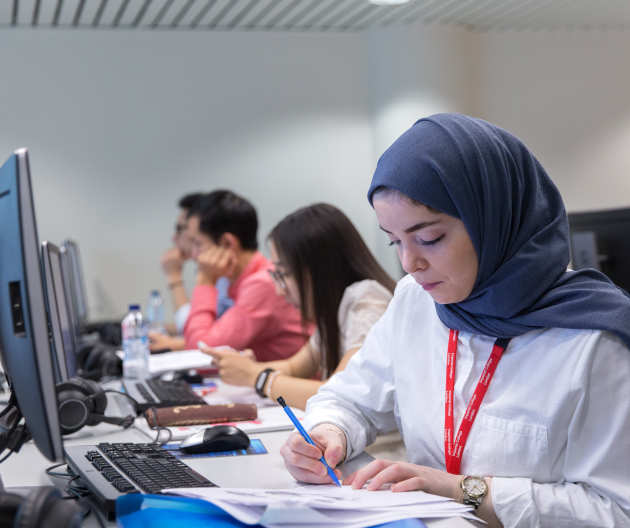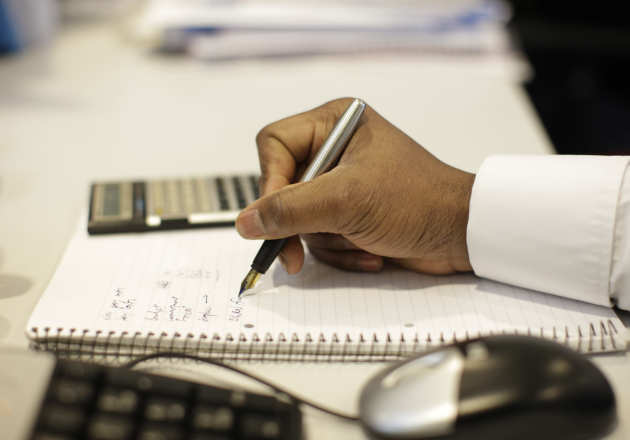Learning to communicate in your own voice is an important aspect of university work. Your tutors and lecturers want to know how well you understand the subject you’re studying, not just how much you have memorised or researched.
Plagiarism

Plagiarism is the presentation of another person's thoughts, words, images or diagrams as though they were your own. Plagiarism is a form of cheating and must be avoided, with particular care in coursework, essays, reports and projects.
Plagiarism is not as simple as copying the work of a fellow student, or from a book. Failure to properly reference work you are quoting can constitute plagiarism. Equally, if you re-use work you’ve previously written yourself and not acknowledged this, you are still committing plagiarism.
You’ll need to be aware of the university’s definitions of plagiarism to ensure that you don’t accidentally plagiarise someone else’s work. More information on plagiarism, and how to ensure you don’t plagiarise in your work, can be found on the Library’s Learning Support pages. Information on Imperial's Cheating Offences Policy and Procedures is also available. The Library also provides copright guidance on the Learning Support pages.
Plagiarism is cheating. This is the case even if you have done it accidentally, so this is a great reason to develop your skills in original writing and correct referencing.
Originality
When you carry out a piece of academic work you will be expected to research your subject thoroughly. It will be necessary for you to show an understanding of the contributions of other researchers, scientists, engineers or medical practitioners to your field of study. When incorporating aspects of this pre-existing work into your own projects, you need to ensure that you maintain originality.
You may be required to submit work through Turnitin, an online plagiarism detection service that enables institutions and staff to compare students' work with a vast database of electronic sources. Find out more on the ICT website.
Remember - using other people's work and ideas is expected and encouraged, but make it clear to the reader where you have done so.
Things to avoid
Quotation without clear acknowledgement

You must always identify quotations clearly and accurately. The reader must be able to tell which parts of the work are yours, and which are quotations. Ask your tutor for help with this if you are unsure how to correctly quote another piece of work. See Referencing for more information.
Disorganised notes
When you're taking notes or preparing for an assignment, you might gather lots of material from different sources. Make sure you keep this clearly labelled with the correct references, so that you don't accidentally include this in your assignment without a reference. Find out more in the Effective note-taking section.
Copying from the Internet
If you are using something you have found online as a source of material for your work, it stills needs to be referenced properly. Remember as well that your lecturers have access to electronic plagiarism detection tool, which will highlight anything copied from an online source.
Collusion
Some projects involve group work. Make sure you understand whether this is to be submitted with individual contributions or as a joint piece of work. If a project is a solo endeavour, unauthorised collaboration or failure to attribute any assistance will be considered plagiarism.
Inaccurate references
Your reference list should be complete, accurate and appropriately formatted. Learn the correct method of referencing and citing other people’s work. Make sure you are clear about where your research has come from, and reference anything you have consulted as part of your reference list or bibliography. See Referencing for more information.
Failure to acknowledge
If you have received any help from outside sources as part of your work, you must clearly acknowledge this. Outside assistance could come from other students, laboratory technicians, or a variety of other sources.
Getting someone else to do your work for you
As unlikely as it may seem, it has been known for students to employ professional agencies to write assignments for them. In the same way that you should not submit work that another student has written, you should not employ anyone to do your work for you.
Re-using your own work
While most plagiarism involves passing someone else’s work off as your own, it is also possible to auto-plagiarise. You must not submit work for assessment that you have already submitted for another purpose.